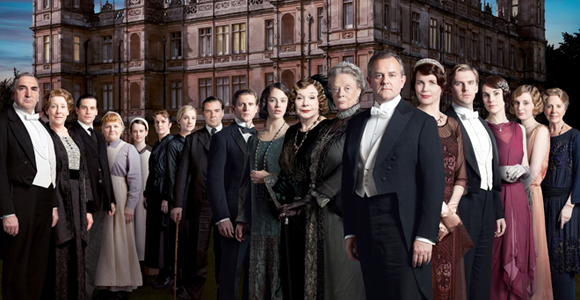Downton Abbey Co-Creator and Writer on Show’s Feminist and Sexuality Influences

Downton Abbey is nearing the end of its run, and its final episodes are filming now. However, some of the cast and crew came out to Los Angeles to speak on a panel discussion about the show’s final season. Most interesting, perhaps, is Julian Fellowes’ (co-creator, writer) thoughts on how feminism and sexuality influenced the show and its characters.
Fellowes described the show as being particularly feminist, in that he tries to depicts all the complexities of life through a wide range of ages, instead of getting fixated on a certain demographic. According to Deadline, he said, “In movieland, everyone stops being a sexual being at about 32, at least for women.” He elaborated further, and said, “The men are allowed to go on until they’re 78, I’ve never worked that out. In my world, on the whole older people have emotions like anyone else, and I think the show demonstrates that.”
For example, Edith, one of the show’s characters, is struggling with an unwanted pregnancy. Fellowes reflected on the differences between handling something like that now as compared to handling it then.
The difficulty in modern drama is if a young woman is living with her family and she’d rather go to New York, [then] go to New York, there’s no problem… Because the customs of our day would allow that, there’s no price to pay, there’d be no social price. It’s totally different in the time of Downton where, for instance, when an illegitimate child would be a secret that would completely ruin Edith… The men were reasonably constrained as well, but nothing like the constraints put around women, and it puts a kind of tension right through the center of it that I think we benefit from.
On sexuality, Fellowes also brought up the Thomas Barrow character, who is a closeted gay man. Back in the time where Downton Abbey is set, being gay was illegal. One could face actual jail time and have their life ruined if anyone found out. So Fellowes tried to explore what that was like through this character and what having to be so protective of yourself meant for your personal relationships.
If you’re heterosexual and you go to a pub, you have one too many, you make a pass at a girl, you might get slapped. But that would be the end of it. Whereas if you make a pass at a man, your whole life could be in shreds by the following morning.
And so we start with a character who’s very touchy, and defensive, and self protective, and rather acid, and quite nasty. But gradually, I hope, we understand why he is all of those things, because he is his only friend, and he is living under permanent threat, even though the others don’t know it. And so we have traced that through, and now he is still defensive, still angry, but he’s less horrible, because more people know about him, and they don’t mind… I think it’s an interesting strand that this was going on so recently, and so many people didn’t question it.
It’s interesting to see how Fellowes has been trying to incorporate some very modern themes into a very classical setting. But it’s important to keep in mind that just because these issues are entering the public eye now doesn’t necessarily mean they’re new. This is a good reminder that many of the things we’re only now dealing with are things that have existed for a long, long time.
(via Deadline)
—Please make note of The Mary Sue’s general comment policy.—
Do you follow The Mary Sue on Twitter, Facebook, Tumblr, Pinterest, & Google +?
Have a tip we should know? tips@themarysue.com